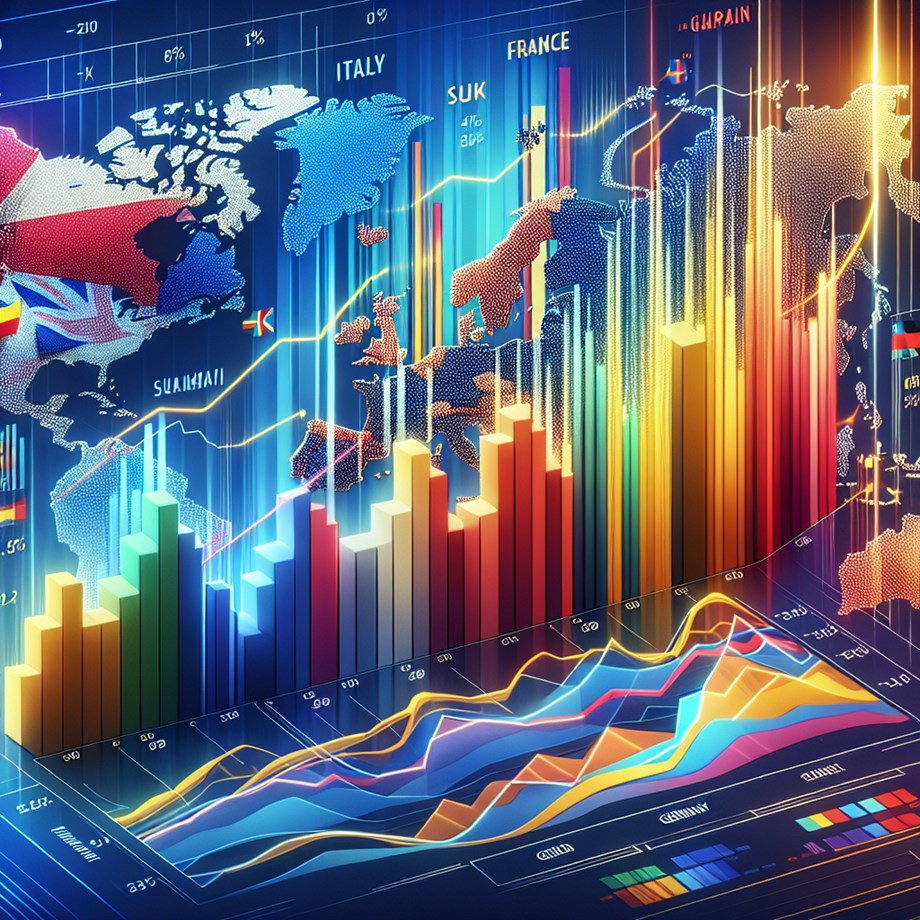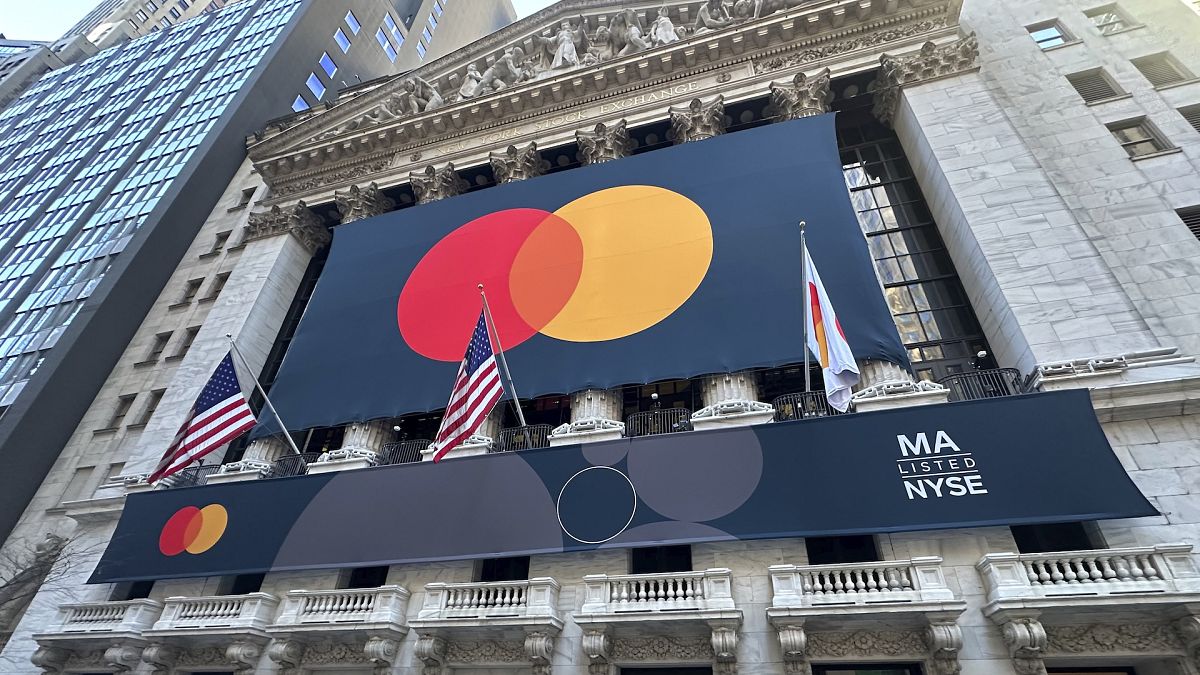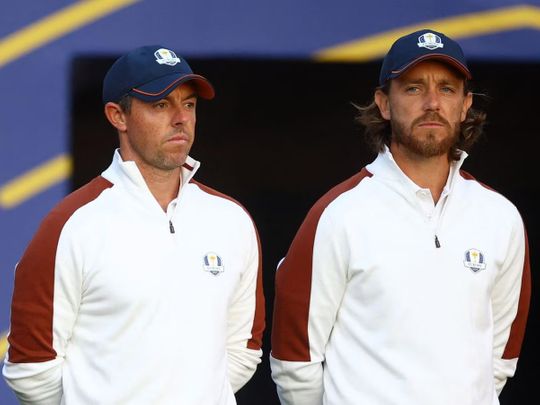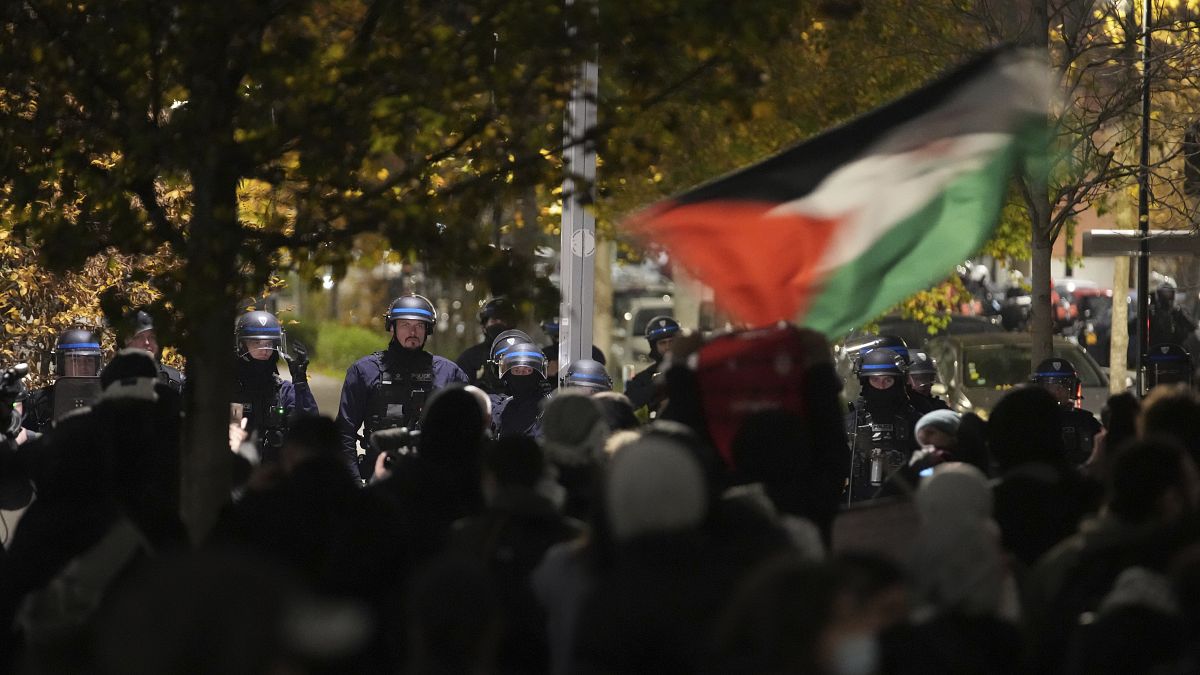Entertainment
Eurovision winner Nemo says organisers didn’t do enough to support acts amid Israel tensions
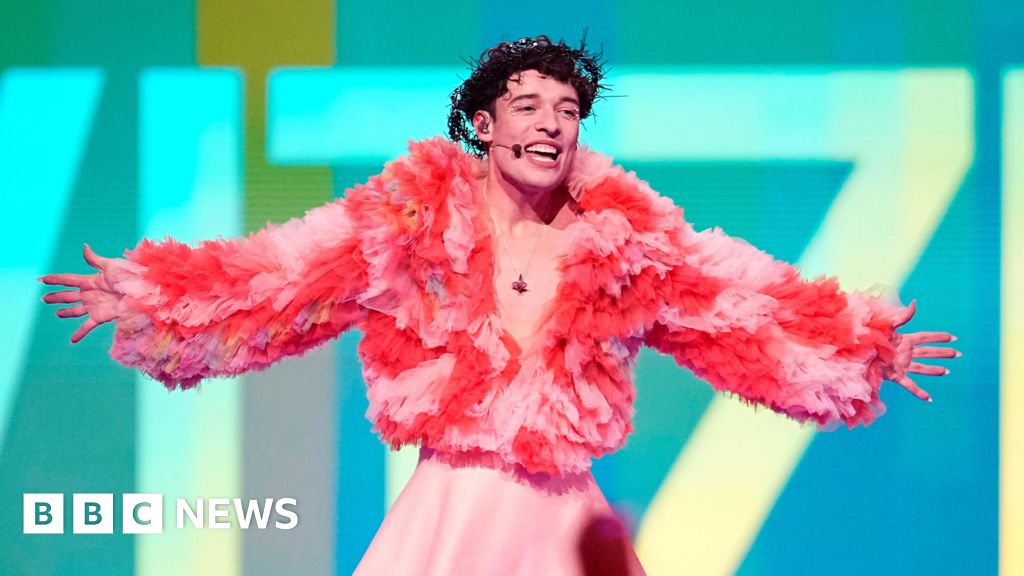
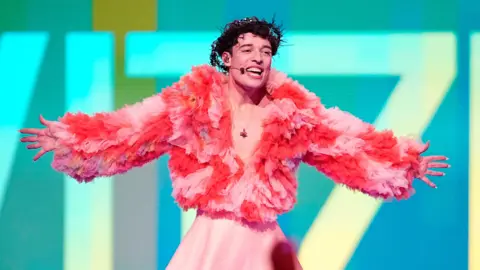 Getty Images
Getty ImagesEurovision winner Nemo has said the song contest’s organisers didn’t do enough to support participants who were caught up in a row over Israel’s inclusion in this year’s show.
“I felt very alone,” the Swiss singer, 25, told BBC News. “I really hope they have things in place for the next year.”
Nemo, who has just released their first single since winning the contest in May, added that the event had “in a way” been overshadowed by the political controversy.
The European Broadcasting Union (EBU), which runs Eurovision, said it had introduced changes that would provide “more clarity and protection” for artists at future contests.
In the build-up to this year’s Eurovision, there were calls for Israel to be banned from the competition over the country’s military action in Gaza, and pro-Palestinian protests on the streets of Swedish host city Malmö.
Some contestants, including Nemo, came under pressure to boycott the show, while Israel’s entrant Eden Golan reportedly faced death threats.
Nemo, who is non-binary and uses they/them pronouns, has since got a record deal and was speaking to BBC News after their new track, Eurostar, was released.
Reflecting on their experiences during Eurovision, Nemo described the atmosphere backstage as “quite tense”.
“There were situations that are still being investigated by the EBU,” they said.
“They told us they would get back to us and they haven’t yet. It’s a shame that the EBU takes so long in my honest opinion.”
When asked if the organisers did enough to support contestants at the time, they paused before answering.
“No. I don’t think so,” they said. “Because I sometimes felt very alone with a lot of things, or at least with the other artists, and it took long for them to get back to artists when they wrote to them.”
With global politics remaining febrile, Nemo added: “I really hope they have things in place for the next year to make sure that part of the whole contest, especially mentally, gets taken care of.
“Because I did feel alone and I know that some other artists were also feeling that way.”
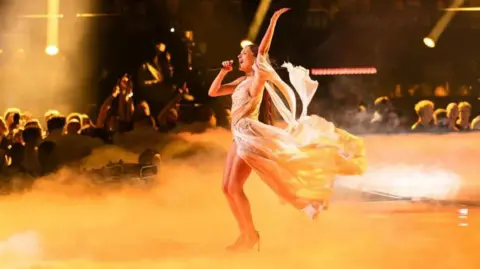 Corinne Cumming / EBU
Corinne Cumming / EBUIn a statement, the EBU said it was “very mindful” of the experiences of several artists at this year’s contest.
“The process of dealing internally with individual incidents is ongoing and we are determined to ensure all rules are applied fairly and consistently,” it said.
It said an independent consultation had resulted in recommendations, including developing a duty of care protocol for people participating in the contest.
“We believe these will help address many of the issues in Malmö and help everyone, no matter their role, to have a positive and safe experience at the Eurovision Song Contest.”
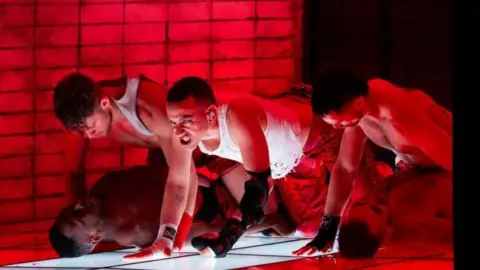 Corinne Cumming / EBU
Corinne Cumming / EBUIn March, Nemo, the UK’s Olly Alexander and seven other Eurovision contestants shared a statement in which they rejected calls to boycott the competition over the Gaza war.
Asked why they made the decision to compete, Nemo said they believe the contest fundamentally has good intentions.
“I made friends from all over Europe and I would say I made very meaningful connections with other artists from places I’ve never been before, listening to music I’ve never heard before, getting to know people that are different to you. Always I think that’s a very good thing,” they said.
“At the core of this contest, I think it’s an exchange of different cultures and coming together and I really believe in that sentiment.”
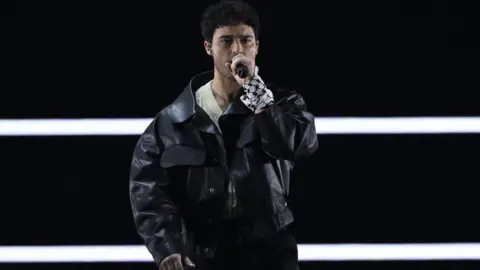 EPA
EPAThis year’s Eurovision was more fraught than usual.
Israel, which has taken part in the contest since 1973, had to change the lyrics of its entry after the original version broke rules on political neutrality because it was thought to reference the Hamas attacks of 7 October 2023.
At the event, there were backstage tensions between the Israeli delegation and some other countries, which Israel later said amounted to “an unprecedented display of hatred”.
Meanwhile, during the semi-finals, former Swedish winner Eric Saade performed in the half-time slot with a Palestinian keffiyeh scarf wrapped around his wrist.
And in the build-up to the grand final, Ireland’s contestant withdrew from a dress rehearsal after complaining about Israeli TV of coverage of their performance; and France’s singer broke with protocol in the dress rehearsal by interrupting his song to make an impassioned speech about peace.
Separately, the Dutch entry was disqualified because of an alleged confrontation with a female camera operator.
Although the rows did partly overshadow their win, Nemo added that they stayed focused on telling their story, “because it was – and I’m still convinced it is – an important story to tell”.
“Knowing that it had an impact, and a lot of people found something in that, and a lot of people gained something from that, especially young queer people, that makes me really happy.”
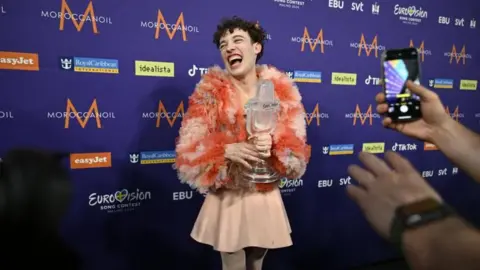 EPA
EPANemo, who was 24 at the time of the contest, became the first non-binary artist to win Eurovision.
Fittingly, they wrote the winning song, The Code, to explain how they came to terms with their identity.
The victory represented a big moment for the LGBTQ community which has, for a long time, treated Eurovision as a safe haven.
“It was only right after Eurovision that I started to realise the scale of what this moment meant to a lot of people,” Nemo said.
They said their win sparked a wider discussion in their own home country, including around offering a third gender option on passports – something Switzerland has so far resisted.
But they also felt the win gave “a lot of queer people hope and feeling understood and finally seen”.
“I didn’t grow up with a non-binary person to look up to. I think we’ve recently had these role models come up,” they added. “I’m really grateful even to be a part of this moment in time.”
‘Post-Eurovision madness’
Nemo, who grew up in Switzerland, has been living in Berlin for the past few years and recently moved to London.
They said the inspiration for their new single, Eurostar, came as they took the train from Paris to the UK capital in July.
“At that time, I was in the craziest phase of post-Eurovision madness, that was every day [having] no sleep, going to the next stop, and I felt the train incorporated all of that.”
“I wanna dance, I wanna party, do it likе no one before,” Nemo sings on a track that is all about living life in the moment and getting carried away in the music.
They said the song was also a metaphor for their arrival in London, a city they described as “inspiring”.
Nemo described the experience of Eurovision as one of “crazy ups and downs”.
“I was a Swiss-based artist that a few people from Switzerland knew and suddenly you have eyes all around you from all around the world,” they said.
For now, they’re focusing on making music and enjoying the moment. But can they turn their victory into lasting fame?
Some Eurovision winners clearly have – such as Swedish pop band Abba and Italian band Måneskin. Most, however, do not.
“I don’t know if my goal is to become Abba,” they said. “I think the goal for me is to find my own voice.”
As for the UK’s own Eurovision hopes, after Alexander received the dreaded ‘nul points’ from the public this year, Nemo has the following advice.
“I would say to any artist that’s thinking of going to Eurovision, I would just do it, and I believe Olly really did that,” they said.
“Do it if you feel like you’re going to enjoy it, and you’re going to enjoy it no matter what the result is.”




